“Can I Try Your Clubs?”
This is my worst nightmare. When someone asks me, “can I try your clubs?” my heart just sinks and my stomach churns. To some, maybe it doesn’t seem like a big deal, but to others, we know the risks associated and are terrified. That’s not to say this event can never happen, but I find it best to avoid the confrontation all together. A recent experience I had made me realize how plagued this hallowed game is by this curse and it’s my duty to help the world improve.
By reading this blog post you should better understand when you should ask, why you shouldn’t ask, and how to respond when asked to try your clubs. Feel free to direct your friends that don’t understand your position to this blog.
When Can Someone Try Your Clubs?
This is a complicated answer and will vary from soul to soul. Face it, we all have different comfort levels as well as “levels of care.” I’m saying some of us care more or than others when our stuff gets ruined. I’ll outline some rules of thumb for best practices in either letting someone try your clubs or asking to try someone’s gear.
Asking to try people’s clubs:
- The person should exhibit trustworthiness as well as golf aptitude. No one should expect to try someone else’s gear if they’re bat out of Hell with a golf club.
- Are you 10 handicap or better? No? Don’t try someone else’s golf clubs.
- Are you willing to pay for any damage inflicted that the owner is displeased with in any way? Don’t ask to try their stuff.
- Just don’t do it. Don’t put someone in that uncomfortable position. You’re now making that person feel bad for saying no, but uncomfortable in saying yes. Don’t be that guy.
- Just don’t do it part 2 – what if something does go wrong? Do you really want to have that awkward conversation about making it right? No, no one does.
Letting people try your clubs:
- Are you willing to risk damage to your stick? If not, say no. If yes, be prepared for the consequences with your $500 driver or $4000 Circle T.
- You should have a certain level of knowledge and comfort with the borrowers golf game. If I know you’re a reliable player, I’m a lot less likely to say no. If I have no direct knowledge of your golfing abilities, I’m going to be hesitant.
- Be prepared to accept the consequences. Yes, this is kind of a repeat, but it’s important. If you say yes and don’t lay out ground rules, it’s your fault. Be prepared to have a permanently damaged club because of your decision.
Rules & Guidelines:
- Never ask to try drivers, fairway woods, and hybrids. The only exception is based on questions above, but establish stipulations.
- Irons and wedges only. They’re meant to be bashed and beat up. If it’s a brand new club though, maybe wait for a few weeks or until offered.
- Putters on short to medium putts only. Don’t scoop a ball or dig it out of the hole with it. Be respectful.
- DEFINITELY don’t ask a stranger – you don’t know each other and the ending could be real ugly. “I’ve never met you before an hour ago, but let me hit that $1000 driver setup you have.” Yikes.
- Just don’t do it, it’s not worth it for anyone. See previous mention above.
Why You Shouldn’t Ask People to Try Their Clubs
This is fairly easy. What do you have to gain from it? Are you in the market for a new driver? Are you just curious? Chances are, none of these reasons make it worth the risks. If you just want to try it for fun, head to your local big box store and bash away. If you’re in the market to maybe buy a new club, maybe you have a better reason. Again, go to a store and put their demos at risk, not your playing partner’s investment.
Speaking of investment, think of the dollar amount. If you’re talking to someone that has a nice and shiny new wood with a flawless crown and topline, do you want to ruin that? Chances are you don’t. Maybe you’re confident you won’t. The truth is, you just don’t know what could happen. If you do mess up the person’s club AT ALL, be prepared to pony up for a proper replacement. If you don’t, then you’re just a flat out jerk and I wish the shanks on you…for life.
How to Respond to the Dreaded Question
As far as I see it, there are two graceful responses to this question. Of course, a simple “yes” or “no” will suit, but it typically feels more difficult than that. My go to “yes” response is:
Sure, but under the condition that you’re financially responsible for anything that happens to the club that impairs how I want it for my own playing. I’m cool with it under that stipulation because I don’t want to risk damage to my club.
Best of both worlds. Laying out the risk, but not saying no. This reply often makes others realize it’s not worth it even if it makes them slightly annoyed. That’s their problem.
My “no” response:
Listen, I’m sorry, I’m just not comfortable with it. I don’t want to risk any damage to the club and I’d really rather avoid the awkward interaction of what to do if something does happen.
Who cares if it’s a small mark that wouldn’t bother you on the crown if it was your own club? It’s my club and it does bother me, and the fact is, it wasn’t there before you tried it.
Do you have any guidelines or go-to responses? Share them in the comments to help us all navigate this constant driving range struggle.

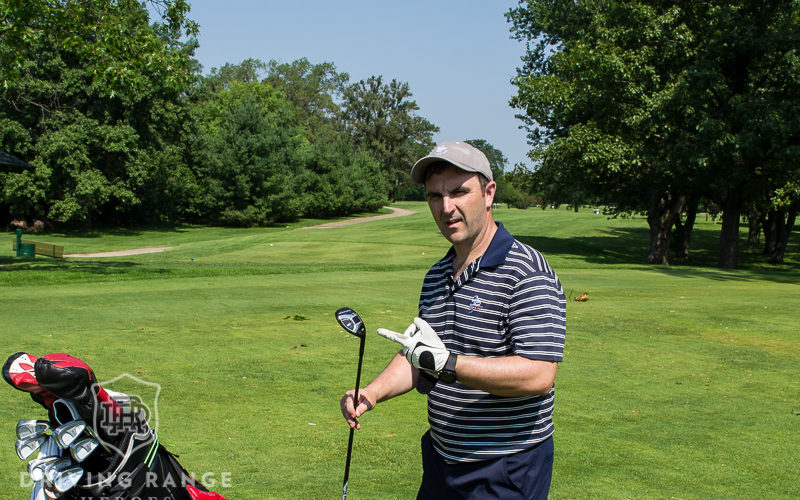
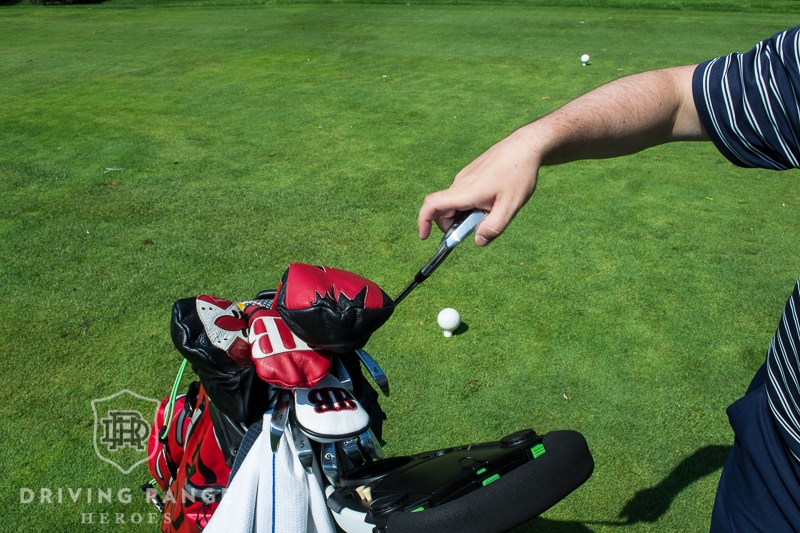
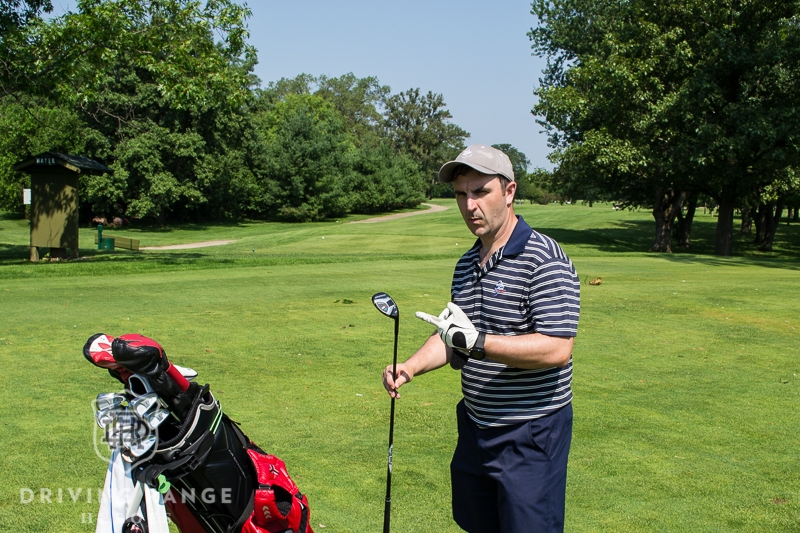

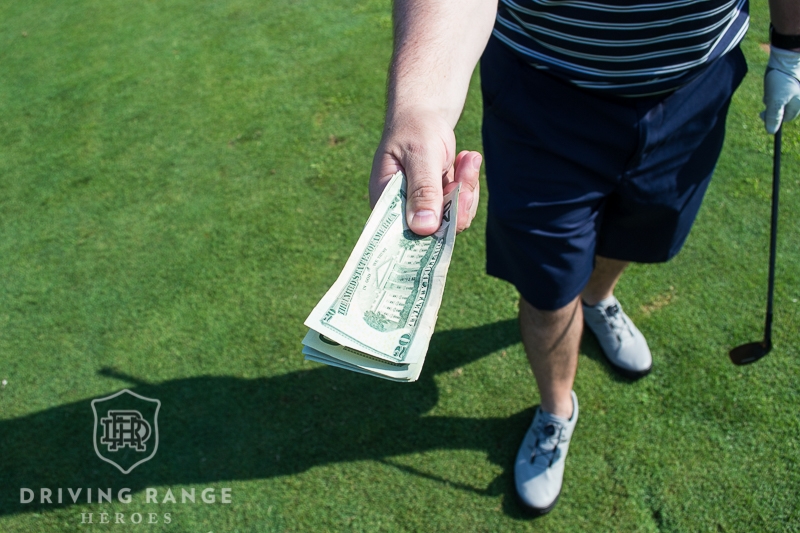



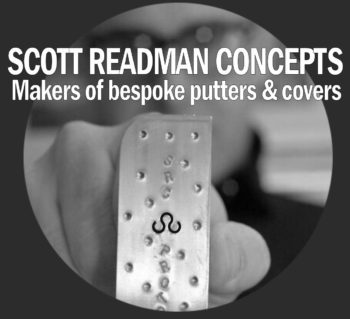











Another reason to say “no” these days is COVID guidance for plying golf safely. Tell them you clubs are “social distancing”.
I wrote this like a year ago and I considered going back to add that, but decided to leave that timestamp out of it. But great point. Our guidelines in IL specifically disallow sharing of equipment. Not sure of the rest of the US/world.